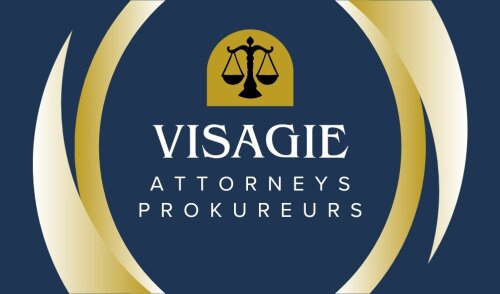Best Debt & Collection Lawyers in Rustenburg
Share your needs with us, get contacted by law firms.
Free. Takes 2 min.
List of the best lawyers in Rustenburg, South Africa
About Debt & Collection Law in Rustenburg, South Africa
Rustenburg, a bustling city in South Africa, has a dynamic economic landscape that inevitably involves matters of debt and collection. Debt & Collection law here is designed to address disputes between creditors and debtors, ensuring lawful collection of debts while protecting consumers from abusive practices. The legal framework governing this field is influenced by national legislation, including the National Credit Act and the Magistrates' Courts Act, which are applicable to local jurisdictions such as Rustenburg.
Why You May Need a Lawyer
There are many scenarios where individuals and businesses in Rustenburg might require legal assistance in matters of Debt & Collection. If you are a creditor trying to recover debts, a lawyer can help navigate the complexities of initiating legal proceedings or alternative dispute resolution. Debtors facing aggressive collection actions or potential bankruptcy may also need legal advice to understand their rights and the possible consequences. Additionally, legal guidance can be essential for negotiating payment plans or settlements, responding to court summons, or preventing property repossessions.
Local Laws Overview
In Rustenburg, Debt & Collection laws are influenced by national statutes, including the National Credit Act, which governs credit agreements and aims to protect consumers while promoting a fair credit market. The Magistrates' Courts Act outlines procedures for handling debt claims at a local level. Enforcement actions, such as garnishee orders and writs of execution, are also regulated to prevent debtor exploitation. Awareness of these laws is crucial for both creditors and debtors to ensure compliance and protect their legal rights.
Frequently Asked Questions
What legal actions can a creditor take in Rustenburg to collect a debt?
Creditors may issue a letter of demand, file a claim with the Magistrates' Court, and, if necessary, obtain judgments for enforcement actions such as wage garnishments or property seizures.
How can a debtor dispute a debt claim in court?
A debtor can file a notice of intention to defend and submit a plea outlining their defense. Legal advice is often beneficial to ensure accuracy and compliance with court procedures.
What is a garnishee order, and how does it work?
A garnishee order allows creditors to collect debt directly from a debtor's wages. This requires a court order and typically happens if the debtor has defaulted on a debt agreement.
Are there any protections against unfair debt collection practices?
Yes, the National Credit Act and the Debt Collectors Act prohibit harassment, false representations, and illegal methods of debt collection, ensuring consumer protection.
Can a debtor declare bankruptcy in Rustenburg?
Debtors can apply for voluntary sequestration in the High Court if they are insolvent. Legal advice is crucial to understand the implications and process.
How long does a creditor have to collect a debt?
According to South African law, the prescription period is generally three years from the date the debt became due, but this can vary based on specific circumstances and agreements.
What should I do if I receive a summons for a debt?
Respond promptly by consulting with a legal professional. Failing to respond might result in a default judgment against you.
How does debt review work?
Debt review is a process designed to help over-indebted consumers restructure their debt payments through negotiation, usually with the assistance of a debt counselor.
What happens if I cannot pay my debts?
Engage with creditors to negotiate a payment plan, consider debt review, and seek legal advice to explore all available options, including asset liquidation under guided insolvency procedures.
Is interest on debt regulated?
Yes, the National Credit Act regulates the maximum interest rates and fees creditors can charge, providing consumer protection from excessive charges.
Additional Resources
For additional support, individuals can contact the South African National Credit Regulator, which oversees consumer credit markets. The Legal Aid South Africa can provide legal assistance to those unable to afford a private lawyer. The South African Law Society is another vital resource for finding accredited legal practitioners in Rustenburg.
Next Steps
If you require legal assistance in Debt & Collection matters, start by researching and selecting a qualified lawyer experienced in this field. Schedule a consultation to discuss your situation, understand potential legal strategies, and receive advice tailored to your circumstances. It is crucial to act swiftly, especially if facing urgent financial or legal challenges, to ensure the best possible outcome.
Lawzana helps you find the best lawyers and law firms in Rustenburg through a curated and pre-screened list of qualified legal professionals. Our platform offers rankings and detailed profiles of attorneys and law firms, allowing you to compare based on practice areas, including Debt & Collection, experience, and client feedback.
Each profile includes a description of the firm's areas of practice, client reviews, team members and partners, year of establishment, spoken languages, office locations, contact information, social media presence, and any published articles or resources. Most firms on our platform speak English and are experienced in both local and international legal matters.
Get a quote from top-rated law firms in Rustenburg, South Africa — quickly, securely, and without unnecessary hassle.
Disclaimer:
The information provided on this page is for general informational purposes only and does not constitute legal advice. While we strive to ensure the accuracy and relevance of the content, legal information may change over time, and interpretations of the law can vary. You should always consult with a qualified legal professional for advice specific to your situation.
We disclaim all liability for actions taken or not taken based on the content of this page. If you believe any information is incorrect or outdated, please contact us, and we will review and update it where appropriate.











